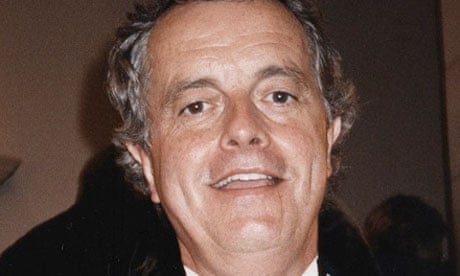The Guinness Book of Records notes that the 44-year collaboration between the Indian producer Ismail Merchant and the American director James Ivory was the longest in the history of cinema. They might equally have added the screenwriter Ruth Prawer Jhabvala, who joined the duo from the start. And a member of Merchant Ivory Productions for almost as long was the composer Richard Robbins, who has died after suffering from Parkinson's disease, aged 71.
The Ivory-Robbins working partnership, which lasted for almost three decades, outdid in longevity such celebrated director-composer unions as Federico Fellini-Nino Rota, Michelangelo Antonioni-Giovanni Fusco and Alfred Hitchcock-Bernard Herrmann. Robbins scored nearly every Merchant Ivory production from The Europeans (1979) onwards, and was an integral part of the film company's brand.
The reason for the endurance of Merchant Ivory Productions was the exceptionally happy balance of similarities and contrasts between its members. Although from a different background, Robbins shared the cultured, cosmopolitan sensibilities of the others, which allowed him to make a significant contribution to the literate, ironic, refined and beautifully designed Merchant Ivory movies.
Robbins was born in South Weymouth, Massachusetts, and studied music from the age of five. He graduated from the New England Conservatory in Boston, and continued his studies in Vienna. In 1976, while director of Mannes College of Music (now Mannes College The New School for Music) in New York, Robbins met Jhabvala, whose youngest daughter was a pupil at the school. She introduced him to Merchant, who produced a 30-minute documentary on Mannes College called Sweet Sounds, which Robbins directed. Three years later, he joined the Merchant Ivory team.
Because many of Ivory's films were period pieces, Robbins's original music had to suggest the epoch. "I find myself very involved with characters' movements in a scene, and I become more and more attached to the characters, and maybe that brings up feelings no one else intended or considered," Robbins remarked, "yet I try to stay away from direct statements of the character's feelings. It would be inappropriate to think that I could completely reveal the characters' thoughts and feelings in music." Very much in keeping with the tone of many of Ivory's films, Robbins's subtle approach was one of his strengths.
Although mostly influenced by the minimalist compositions of Philip Glass, Robbins was capable of producing the sumptuous, colourfully orchestrated, symphonic music, just the right side of sentimentality, for Maurice (1987), which won the best score at the Venice film festival. It remained Robbins's own favourite among his scores.
Robbins's music ranged from a jazzy foxtrot for Quartet (1981), and Indian themes in Heat and Dust (1983), to the jauntily percussive soundtrack for Mr and Mrs Bridge (1990), modern-sounding classicism for Jefferson in Paris (1995) and Richard Straussian tones for The Golden Bowl (2000).
As music director, he also had to select music that the characters would have listened to, contributing to the mood of the film. "The pieces give us additional information about the characters," Robbins explained. "The works of Beethoven and Schubert were once part of people's daily musical landscape, as surprising as that may seem today."
Naturally, Beethoven's Fifth Symphony, given EM Forster's famous description of it in the novel, featured in Howards End (1992), as did the Franz Schubert song Sei Mir Gegrüsst in The Remains of the Day (1993), though both films gained Oscar nominations for Robbins for best original score. He also permitted Puccini's aria O Mio Babbino Caro to dominate the rapturous scenes in A Room with a View (1985), and pop songs by musicians including Ziggy Marley, Inner City and Iggy Pop for Slaves of New York (1989).
One of the few films Robbins scored outside the Merchant Ivory "family" was Nicole Garcia's Place Vendôme (1998), a glossy thriller starring Catherine Deneuve. In 1996, he collaborated with his partner, the artist Michael Schell, on a stage work, Via Crucis, representing the Stations of the Cross. Schell survives him.
